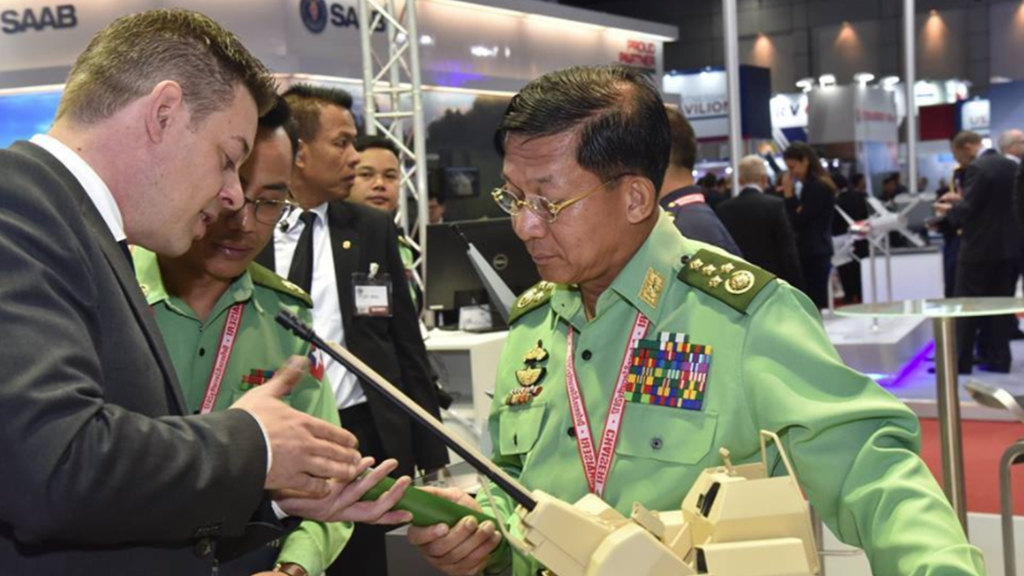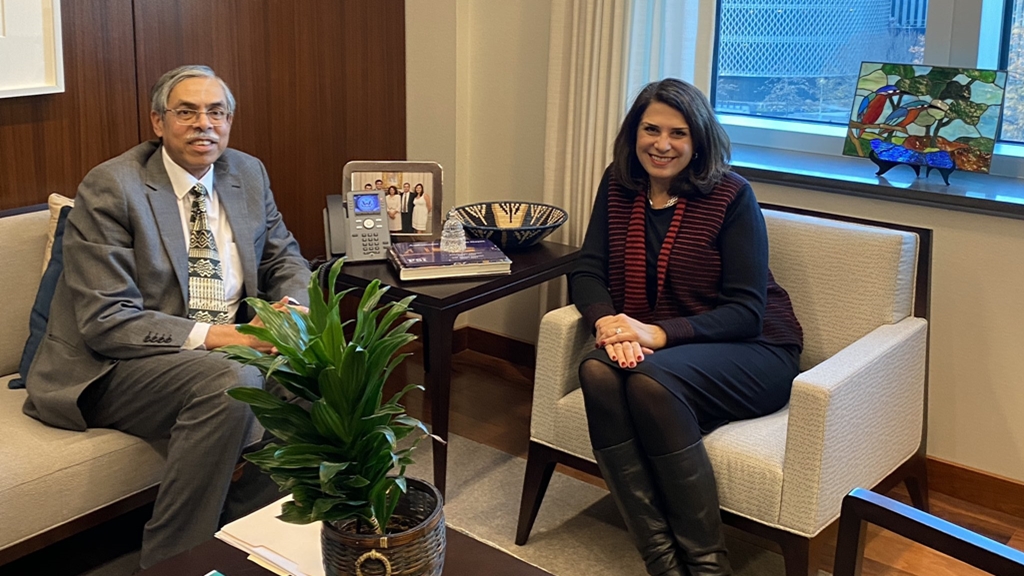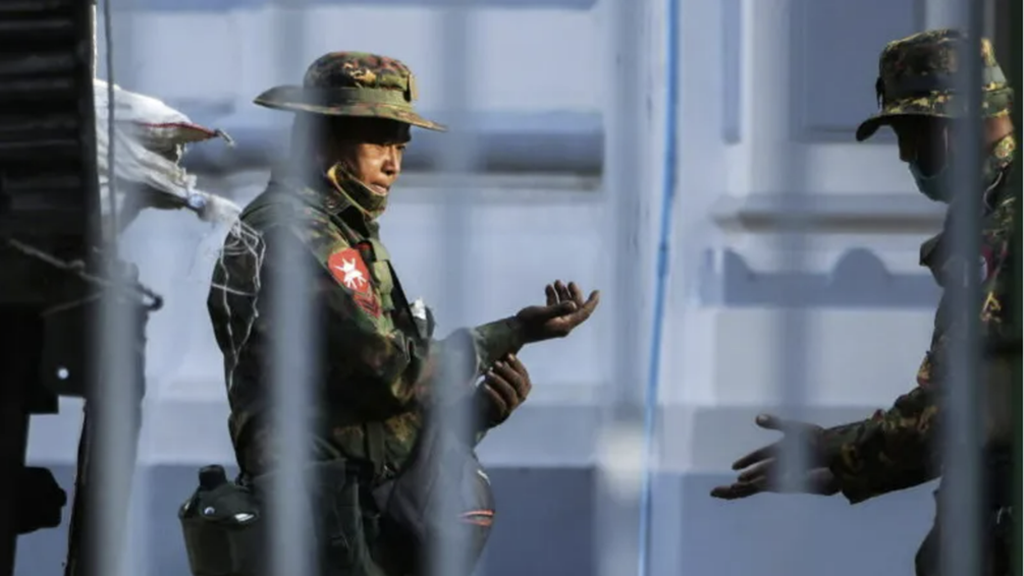
Arming genocide
- 07/11/2019
- 0
By Tasneem Tayeb, The Daily Star
Arms trade is big business, governed by its own set of conventions. These transactions are triggered by conflicts and peacekeeping; for violence and security—depending on who the buyer is. And global arms sale has reached alarming levels in recent years—highest since the end of the Cold War.
This multibillion-dollar industry rode high on the back of continued conflicts in the Middle East, Central and South America, and Asia, in recent years, with the total value of the global arms trade reaching more than USD 95 billion in 2017 (ISPRI).
And although 105 states have ratified the Arms Trade Treaty (ATT), a multilateral treaty that regulates the global trade in conventional arms, some of the signatories are not complying with it. Case in point: arms sale to Myanmar during the Rohingya genocide.
The Anadolu Agency reported that a UN fact-finding report, earlier this year, stated that 14 companies from China, North Korea, India, Israel, the Philippines, Russia and Ukraine have supplied fighter jets, armoured fighting vehicles, warships, missiles and missile launchers to Myanmar since 2016.
The UN report found that, “The public record made it clear that the Tatmadaw [Myanmar’s military] used many of the types of arms and related equipment that these entities were providing, to commit gross violations of human rights and serious violations of international humanitarian law.”
And while Israel was among the seven suppliers, it came under focus on the UN report because, to quote the report: “Israel, in particular, allowed the transfer of arms covered by the ATT (Arms Trade Treaty) at a time when it had knowledge, or ought to have had knowledge, that they would be used in the commission of serious crimes under international law.”
Until an Israeli court order prohibited further arms sales to Myanmar, Israel, according to human rights groups, had sold to Myanmar over 100 tanks, weapons and boats used to police the country’s border.
According to a report by Times of Israel, Israel allowed the sale of arms to Myanmar well into the fall of 2017, long after other countries had banned such arms sales by its firms to the country.
And despite the ban on arms sale to Myanmar, relations between the two countries remains warm, so warm that Myanmar military high-ups had been seen touring the Israel Defence and Homeland Security Expo in Tel Aviv in June this year; they were keenly examining the latest military technology innovations of Israel.
Apart from directly engaging in arms deals with Myanmar, around 60 foreign companies have ties with businesses controlled by Union of Myanmar Economic Holdings Limited and Myanmar Economic Corporation—two military-dominated conglomerates in Myanmar, thus, aiding in their growth. As a result, the UN fact-finding mission urged imposing targeted financial sanctions on companies linked with Myanmar’s military and suggested that foreign companies doing business with the Tatmadaw-controlled corporations could be complicit in international crimes.
According to Doctors Without Borders (MSF), at least 9,000 Rohingya had been killed in Rakhine between August 25-September 24 in 2017. Among the killed, 730 were children below the age of 5. According to a global humanitarian group report, 71.7 percent, or 6,700 Rohingya, were killed through violence—some perhaps with the same weapons Myanmar had procured from the seven nations. This may explain why India or China, two major regional powers with strategic influence over Myanmar, are not quite as vociferous as they could be in their efforts to call for an end to the persecution of the Rohingya in Rakhine.
Arms sale is a lucrative business. And although sale of arms is not easy to justify, it is essential that it is regulated in a responsible manner in order to avoid unnecessary human suffering. Uppsala Conflict Data Program statistics shows that since 1989, 2,436,351 people have died in armed conflicts, with over 77,320 in 2018 alone. In 2017, in a drastic rise in human deaths caused by violence, nearly 589,000 lives succumbed to it.
These figures are as alarming as they are heart wrenching—but they do not account for the more intangible: the human suffering these arms cause.
More than 723,000 Rohingya had to flee the genocide in Myanmar and seek shelter in Bangladesh, which is currently hosting more than 1.1 million Rohingya refugees, thanks to the many phases of violence the Tatmadaw has unleashed on the helpless minority group over the decades.
And while it is easier to tally the number of the dead, or the ones who have had to flee their homeland to escape violent persecution, the question remains: how can one quantify the daily sufferings of the people affected by violence during conflicts—conflicts that are reinforced, complemented and often escalated by arms sale, especially to irresponsible buyers?
With world powers counting their profits through arms sales, or simply not bothering themselves about issues—death and displacement due to violence—that have become recurring realities in this conflict-infested world, it is the fate of nearly two million Rohingyas—some in Bangladesh, some still trapped in Myanmar—that is at stake in our very own backyard. In the equation of power and money, human suffering is perhaps of no importance.
Tasneem Tayeb works for The Daily Star.
Her Twitter handle is @TayebTasneem







